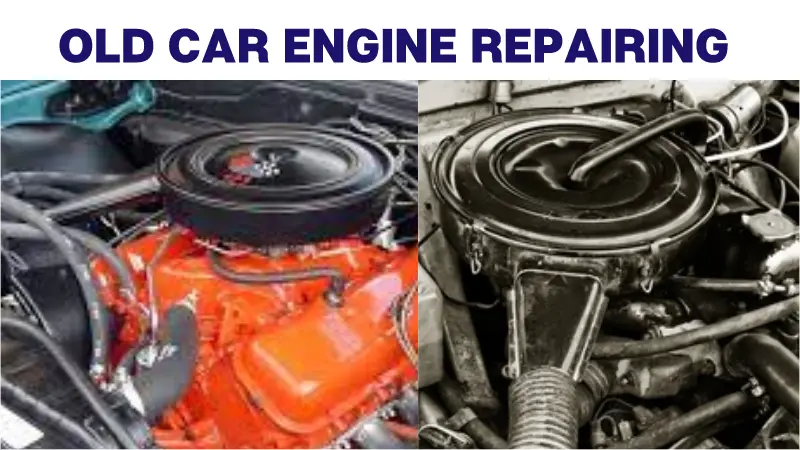What Alternative fuels is the best for internal combustion engines?

When it comes to powering internal combustion engines, traditional gasoline engine and diesel have been widely used for a long time. However, as concerns about their environmental impact and sustainability continue to grow, alternative fuels are gaining momentum. In this article, we’ll explore alternative fuels for internal combustion engines. Whether you’re a car enthusiast aiming to reduce your carbon footprint or an industry professional staying informed, read on to discover the best alternative fuels.
Biodiesel: Nature’s Powerhouse
Biodiesel, a sustainable fuel made from natural sources such as vegetable oils and animal fats, is known for its eco-friendly qualities. It is widely considered an excellent option for powering internal combustion engines. Unlike fossil fuels, biodiesel is responsible for a significant reduction in greenhouse gas emissions, thus contributing to cleaner air and a healthier planet. Additionally, this renewable resource reduces our dependence on limited fossil fuel supplies, which enhances energy security. Furthermore, biodiesel production frequently employs recycled cooking oils, leading to decreased waste and a reduced environmental impact. Its compatibility with existing engine technology makes it a practical and responsible choice for individuals looking to reduce their carbon footprint while driving or using machinery.
Biodiesel is known for:
- Reduced carbon emissions
- Biodegradability
- Improved engine lubrication
Ethanol: The Corn-Based Wonder

Ethanol, typically derived from corn, is considered a promising alternative fuel option. Its common use entails its blending with gasoline, leading to the formation of E85 fuel, which is associated with several advantages. E85 fuel is recognized for its capacity to decrease greenhouse gas emissions and reduce our dependence on fossil fuels. Additionally, it lends support to the agricultural sector by increasing the demand for corn cultivation, thus contributing to rural economies. Moreover, E85 possesses a higher octane rating, which improves engine performance in compatible vehicles. This blend of ethanol and gasoline represents a sustainable move towards diminishing our environmental impact and broadening our energy sources.
Ethanol is praised for:
- Lower greenhouse gas emissions
- Reduced dependence on fossil fuels
- Domestic production
Hydrogen: The Clean Energy Solution
Hydrogen, when used as a fuel, is known for its strong environmental credentials because it only emits water vapor when it is used. This quality makes it one of the most environmentally friendly energy options available. It’s worth noting that hydrogen is being used more and more in internal combustion engines, which could lead to a cleaner and more eco-friendly future for transportation and power production. Since it doesn’t produce any greenhouse gases and can be made in sustainable ways, hydrogen has great potential in helping to reduce the harmful impacts of climate change and in moving towards a more sustainable energy future. As hydrogen’s applications grow, its role in lowering our carbon footprint becomes increasingly important.
Hydrogen offers:
- Zero carbon emissions
- High energy efficiency
- Potential for renewable production
Compressed Natural Gas (CNG)

Compressed Natural Gas, known as CNG, can be easily used as an alternative fuel in regular combustion engines with only a few adjustments. CNG mainly consists of methane, and it gets compressed to take up less space for storage and transportation. Because it has less carbon than traditional fuels like gasoline or diesel, it’s a better option for the environment. Since there’s already a distribution system in place for natural gas, it’s a convenient choice for personal and commercial vehicles. CNG is a versatile and sustainable energy source, playing a significant role in the transition to cleaner transportation solutions.
CNG benefits include:
- Lower emissions compared to gasoline
- Abundant supply
- Cost-effectiveness
Propane: The LPG Advantage
LPG, or liquefied petroleum gas, is widely used as a fuel for internal combustion engines, especially in fleet vehicles. It is known for being a clean-burning fuel, which makes it a more environmentally friendly option compared to regular gasoline or diesel fuels. When propane burns, fewer harmful emissions are produced, which helps decrease air pollution and improve air quality. Additionally, it is cost-effective, helping fleet operators save on fuel costs and reduce their vehicles’ carbon footprint. Its ease of storage and transportation also make it attractive to industries that rely on mobility. Propane’s versatility and environmental advantages continue to drive its adoption in various sectors.
Propane offers:
- Clean-burning properties
- Reduced maintenance costs
- Lower emissions
Electricity: The Silent Revolution
Electricity is used as an eco-friendly option instead of fuel. It provides power for electric vehicles (EVs) with electric internal combustion engines (E-ICE). Unlike regular gasoline or diesel cars, EVs depend on electricity as their main power source. This makes them a cleaner transportation choice. These vehicles create no emissions from their tailpipes, which helps reduce air pollution and keeps the planet healthier. Additionally, the expanding network of EV charging stations makes it easier for drivers to opt for this sustainable transportation method. This reduces our need for fossil fuels and supports a more sustainable future.
Electric vehicles provide:
- Zero tailpipe emissions
- Quiet operation
- Regenerative braking
Conclusion
In this era of increased focus on sustainability, the search for better fuels to operate internal combustion engines is on the rise. Options like biodiesel, ethanol, hydrogen, compressed natural gas (CNG), propane, and electricity are available, each with unique advantages. Your choice among these options depends on factors such as your vehicle type, fuel availability, and environmental goals. By adopting these new choices, not only can harmful emissions be reduced, but a significant role can also be played in promoting a more environmentally responsible planet. Our collective move towards these alternatives offers hope for a cleaner and more eco-friendly future.
FAQs
Can I use alternative fuels in my existing gasoline car?
In most cases, minor modifications are needed for the effective use of alternative fuels. Guidance should be sought from a professional mechanic.
Which alternative fuel is the most widely available?
Compressed Natural Gas (CNG) and propane (LPG) are readily available because there are many places where you can fill up your vehicle with them.
Are alternative fuels cost-effective?
While higher initial costs may be incurred by some alternative fuels, they are often offset by long-term savings on fuel and maintenance.
Do alternative fuels really reduce emissions?
Carbon emissions are greatly reduced by alternative fuels such as biodiesel and hydrogen when compared to regular gasoline or diesel.
Are electric internal combustion engines (E-ICE) practical for daily use?
Electric vehicles with E-ICE are becoming more practical as the charging infrastructure keeps growing.
Are alternative fuels compatible with hybrid vehicles?
Yes, many hybrid vehicles are designed to run on a combination of traditional fuels and alternative fuels.











